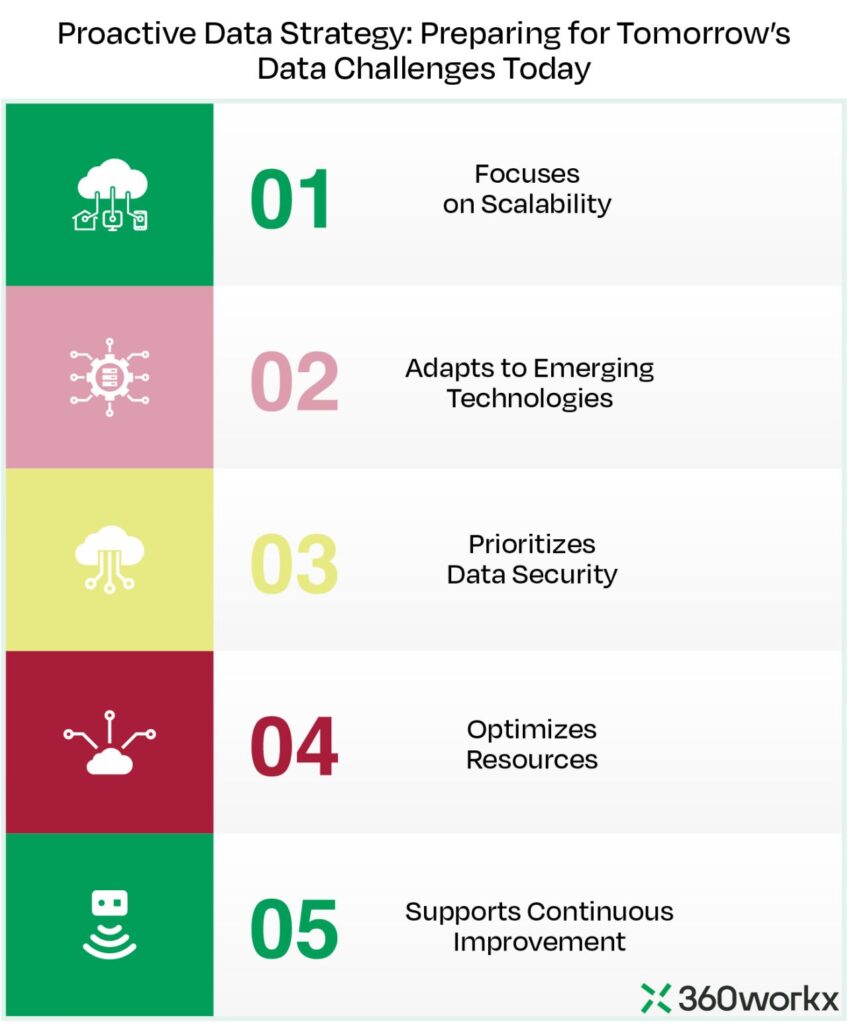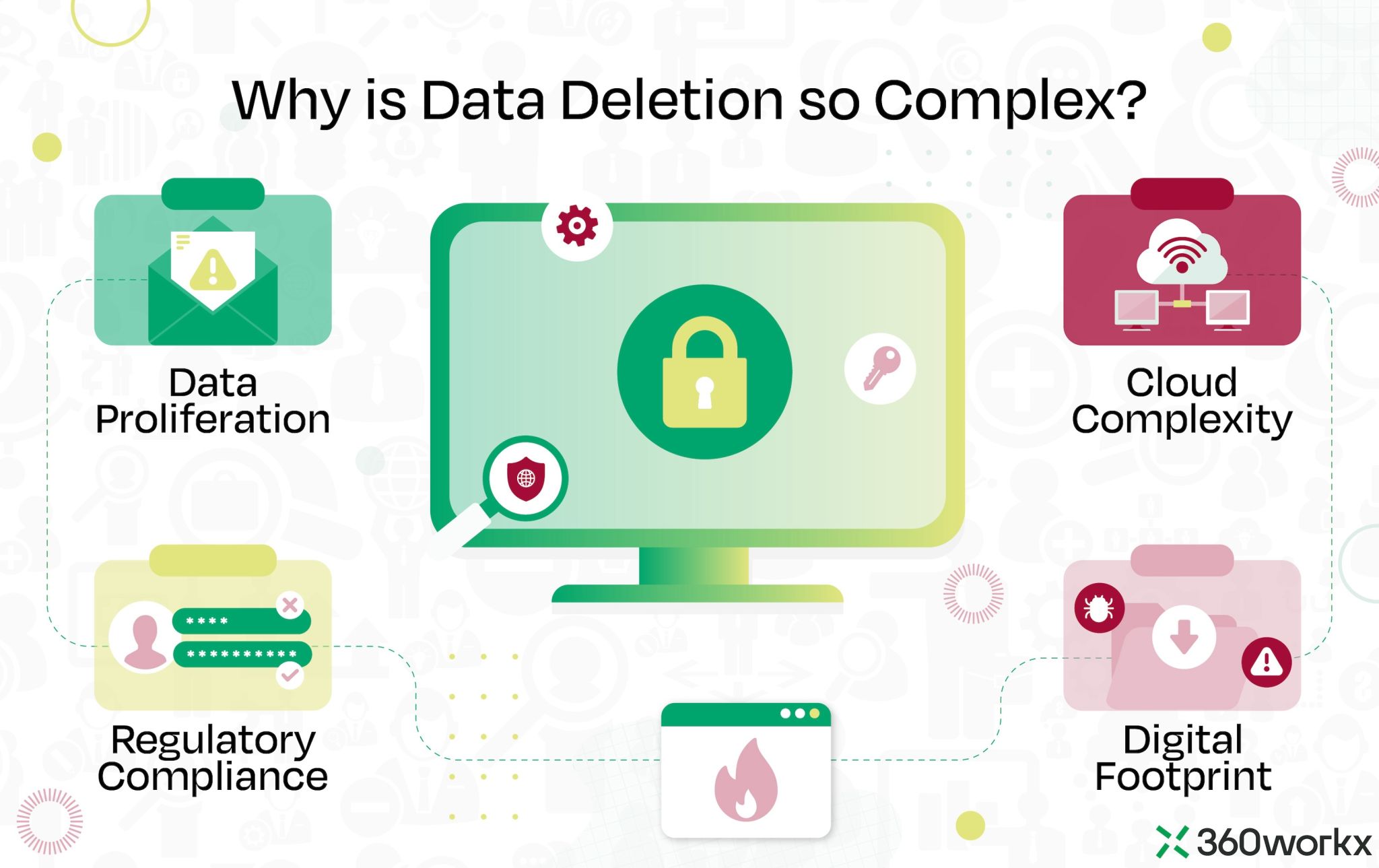In an era where data is the backbone of decision-making, organizations cannot afford to take a reactive approach to data management. A proactive data strategy ensures that businesses not only meet current data demands but also anticipate future challenges, positioning them for long-term success.

1. Focus on Scalability
A forward-thinking data strategy ensures that an organization can scale efficiently as its data footprint expands. Whether handling growing volumes of structured and unstructured data or integrating new data sources, a scalable strategy prevents bottlenecks and maintains seamless operations.
💡 Example: The Data Privacy Hub (DPH), with its message-based integration architecture using Kafka, enables scalable data deletion workflows that can handle vast amounts of data across multiple applications.
2. Adapt to Emerging Technologies
A proactive data strategy embraces technological advancements such as AI-driven analytics, automation, and real-time data processing. Organizations continuously evolving with emerging tech will stay ahead of regulatory, operational, and customer-driven changes.
🔍 How DPH Helps: DPH’s flexible deployment options, including standalone and metadata-integrated solutions, allow organizations to future-proof their data management practices.
3. Prioritize Data Security and Compliance
With GDPR, the revised Swiss Privacy Law (nFADP), CCPA, and evolving privacy laws, organizations must embed security and compliance measures within their data strategy rather than treating them as afterthoughts.
🔐 Security in Action: DPH leverages PostgreSQL RDS encryption, role-based access control (RBAC), and API security measures to ensure data privacy while meeting strict compliance requirements.
4. Optimize Resources and Reduce Waste
Inefficient data management leads to redundant storage, increased processing costs, and poor performance. A well-structured data strategy eliminates data silos, streamlines workflows, and maximizes operational efficiency.
⚙️ Efficiency in DPH: Automated compliance workflows, hierarchical data deletion, and centralized monitoring dashboards reduce manual intervention, ensuring optimal resource utilization.
5. Support Continuous Improvement
The most resilient organizations treat data strategy as a living framework, not a static plan. Regular audits, analytics-driven insights, and iterative improvements keep the strategy aligned with evolving business needs.
📊 Continuous Improvement with DPH: With real-time reporting, customizable dashboards, and error-handling mechanisms, DPH enables organizations to refine their data processes continually.
The Bottom Line
A proactive data strategy empowers organizations to avoid compliance risks, embrace innovation, and maximize data value. Companies can confidently handle future data growth while maintaining compliance and operational efficiency by implementing scalable, secure, and adaptable data management practices.
🚀 Future-Proof Your Data Strategy Today!
To learn how Data Privacy Hub can help you build a resilient, proactive data strategy, contact us at contact.us@360workx.ch.



